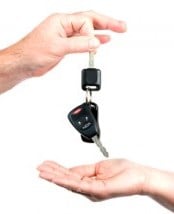

Your commercial clients are going to celebrate the holidays, which usually means an employee party – and that probably also means alcohol will be served.
This can open a Pandora’s Box of liability for employers if employees are getting drunk at the party and then getting behind the wheel, says Steven Hawkins, the senior vice president of Marsh Canada Limited Consumer Practices. But there are ways to limit this and stop a drunken party guest from making headlines that could embarrass the company, or potentially cost millions if tragedy should strike.
“Brokers should advise their commercial clients that they can indeed party on this festive season by following a few precautionary steps to avoid trouble before it strikes,” says Hawkins.
Employers fall somewhere in the middle between commercial and social host, he points out.
“While companies don’t profit from alcohol consumption at holiday parties the way, say, a club owner does, the relationship between employer and employee is more like that between bar owner and patron than between a private host and a guest” says Hawkins. “Until there is a more definitive ruling from the courts on the issue, employers may be either commercial or social hosts. From a liability standpoint, the smart move is to play it conservatively and take measures necessary to meet the more stringent commercial liability standard.”
According to the Canadian Supreme Court, there are three things a commercial host must do: (continued.)
#pb#
1. Monitor How Much Guests Drink: If your client is playing host, they are expected to track how many drinks each of your guests has consumed. For example, one of the reasons an employer was found negligent after an employee drove home drunk from a company holiday party, was that the party had an open and unsupervised bar. As a result, employees were able to help themselves to cocktails and there was no way to monitor how much each person had drunk.
What to do: Before the party, designate one or more persons to monitor consumption. Whether you use your own people or outsiders, caution monitors not to drink during the party. Consider hiring bartenders who have Smart Serve accreditation, who are trained to keep an eye on how much customers drink. You can also keep track and control drinks consumed more easily by issuing drink tickets.
2. Monitor Whether Guests Are Intoxicated: The Canadian Supreme Court says commercial hosts must make “reasonable assumptions” about whether guests are impaired based on how many drinks they’ve had.
What to do: Have your monitors make judgments about intoxication. Refer to legal limits in defining intoxication levels. Under the Canada Criminal Code, individuals can be charged with a crime if they drive with a Blood Alcohol Content (BAC) of over .08 per cent. Keep in mind that several provinces, including B.C. and Ontario, impose fines, licence suspensions and other penalties on drivers in the BAC “warn range” of .05 per cent.
Your commercial client doesn’t have to administer blood tests and breathalyzers to your guests. All they need to do is make “reasonable assumptions” about intoxication. You can in fact estimate a person’s BAC level by observing how many drinks he or she’s had. But you need to consider that individuals get impaired at different rates. It depends not just on the number of drinks they’ve had but on their gender and weight (among other things). (continued.)
#pb#
3. Prevent Intoxicated Guests from Driving: If the client knows or has reasonable grounds to suspect that the guest is impaired, they must make an effort to prevent him/her from getting behind the wheel. How far does an employer have to go to keep an intoxicated guest from driving? There’s only been one case where a court had to answer that question — the Hunt ruling. In that case, the employer did try to dissuade the employee from driving. It offered to call her husband; and it arranged for another employee to drive her home.
But the court said that this wasn’t enough.
The employer should have taken her keys, her car, brought her to a hotel and, if none of that worked, call the police. Although Hunt isn’t the final word, the law clearly expects commercial hosts to make a determined effort to keep drunken employees off the road. A token protest or offer to drive the person home probably isn’t going to be enough.
What to do: Use carrots such as appointing designated drivers, giving out taxi vouchers and even reserving hotel rooms where drunken party guests can go to “sleep it off.”
Hawkins says that along with the carrot, employers should be prepared to use the stick.
“Be prepared to use the stick, too,” says Hawkins, “Such as adopting a zero tolerance policy for drinking and driving; sending employees a note a day or two before the party reminding them of the policy; and collecting the names and phone numbers of employees’ spouses or, if they’re unmarried, other person who can pick them up if they get drunk.”
In additions, Hawkins urges brokers to convince commercial clients to make guests turn in their car keys if they plan to drink; appoint a monitor to watch the parking lot in case an intoxicated guest tries to sneak out; and if necessary, discipline intoxicated employees who don’t cooperate.
“And if all else fails, call the police,” he says.
“The easiest way for your commercial clients to avoid liability risks for employee drunk driving after holiday parties is not to serve any alcohol at the Christmas party,” says Hawkins. “But if going dry isn’t an option for the client, brokers should impress upon their clients the importance of managing their liability risks to keep the party guests from dragging the company into legal trouble.”
